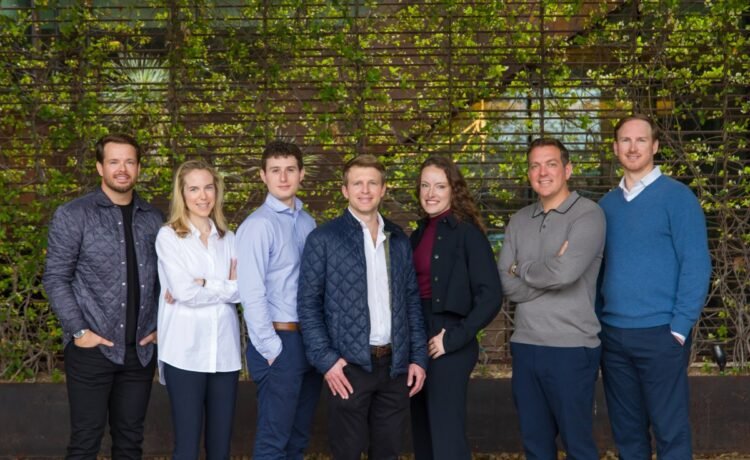When Ironspring Ventures launched in 2020 to back startups in industrial sectors like construction and manufacturing, it was one of very few early-stage venture firms paying attention to those capital-intensive sectors. Now, the firm is doubling down.
The Austin, Texas-based firm raised $100 million for its second fund to focus on industrial startups. This is a noticeable increase from the firm’s $61 million debut fund that closed in 2021. This latest raise enabled the firm to hire its first principal, Colleen Konetzke, and a head of platform, Stephanie Volk. The firm plans to invest Fund II into 20 startups, backing about three companies a year.
“What we saw back then was as true as we see today,” Ironspring co-founder and general partner, Ty Findley told TechCrunch. “There is a big gap in the venture industry that deeply studies and has genuine GP market fit with these industrial markets and can help them navigate a pretty challenging go-to-market [process]. When you really roll [these industries] up they are over half of the U.S. GDP. My strong opinion is, we as a country, simply can not afford to let the U.S. get left behind.”
The industries Findley is referring to include: manufacturing, construction, transportation and energy. The firm backed 16 companies in its first fund including Solvento, a payments infrastructure startup for trucking companies in Mexico, OneRail, a last-mile logistics startup, and Prokeep, a communications platform for distributors, among others.
Ironspring has already backed six companies with Fund II and deployed about a quarter of the fund. Findley said the main difference between Fund I and Fund II is that the additional capital allows the firm to write bigger checks this time around, $2 million to $4 million, which will help them stay competitive as seed rounds have gotten larger.
Findley said he’s excited to have a fresh pool of capital to invest right now because of the macroeconomic tailwinds impacting the industries they focus on. Supply chain constraints that started during Covid-19, are still ongoing in addition to new ones prompted by conflict in the Middle East. Policy including the Inflation Reduction Act and CHIPS and Science Act are bringing buzz and government money to these sectors too. Plus, Findley added that the advancements in AI could make a huge difference in these industries.
“We are seeing more top-tier tech and innovation talent flood into these industries,” Findley said. “Whether they are recirculating from recent tech unicorns, or just other tech talent that simply wants to make a big impact on their career that’s not based on photo sharing or adtech or chasing the next crypto coin, that is what the macro trends are.”
GoodShip is a good example of this. The freight orchestration and procurement platform was started by former operators at Convoy. Ironspring co-led the firm’s 2023 seed round alongside Chicago Ventures and re-upped at the Series A earlier this year.
While Irongspring was one of the first early-stage firms focused on this space, the category has gotten more crowded as deep-pocketed firms like Andreessen Horowitz, General Catalyst and Bessemer have entered the space. Findley doesn’t look at the entrance of these name-brand firms as competition though.
“I’m a believer that the more capital flowing into these industries the better,” Findley said. “Those are great allies. We wouldn’t be able to do our job at the seed-stage if we didn’t have great downstream growth.”
Findley said that it takes a village for these types of startups to successfully grow and he’s glad other firms can bring different perspectives to their portfolio companies. He added that the firm invites these other firms on to its podcast, Heavy Hitters, to create a resource for their portfolio companies and beyond. The firm’s podcast has featured notable VCs including: Katherine Boyle, a general partner at A16z, Aaron Jacobson, a partner at NEA, and Lior Susan, the CEO and founder of Eclipse Ventures, among others.
Findley thinks they will still stand out among the growing noise because of their sector expertise and their “secret sauce” LP base. The firm’s LP base is comprised of operators in the industries they work in that own construction companies and manufacturing plants and can not only give guidance and advice to companies but also serve as potential customers too.
Ironspring being based in Austin is an asset, Findley said, due to where they invest — a narrative that conflicts with how many others in the venture ecosystem view the once emerging tech hub. Findley said that many of the industries the firm is focused on have history in Austin and with Tesla moving its headquarters there and the recently approved $6.4 billion awarded from the infrastructure act for Samsung to build semiconductor chips there, it has the right talent to drive the digital industrial revolution.
“The U.S. can’t allow these critical industries to be left behind,” Findley said. ” We are here for the long haul in ensuring that will never happen.”















